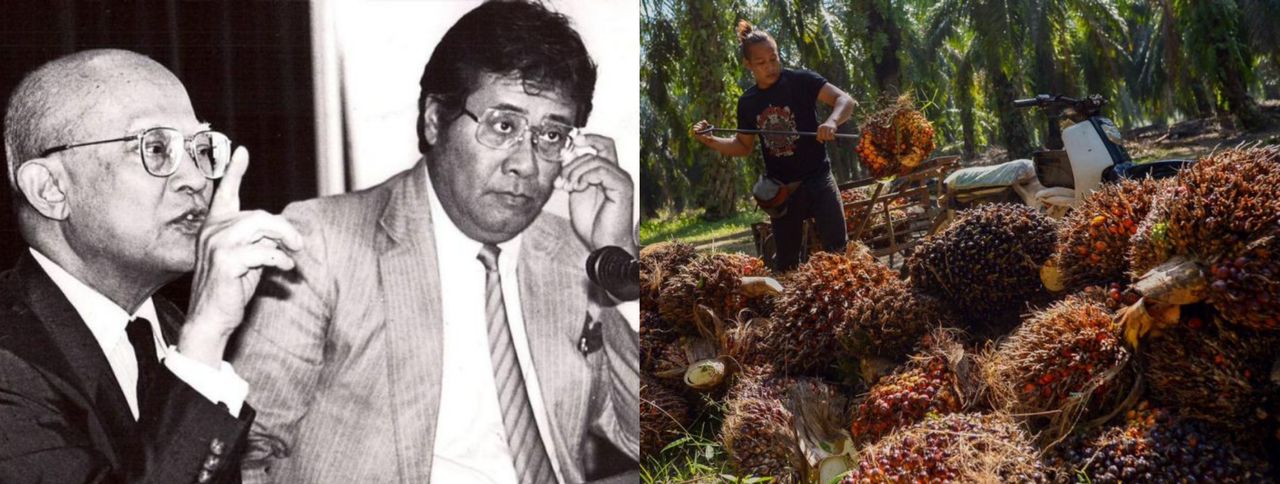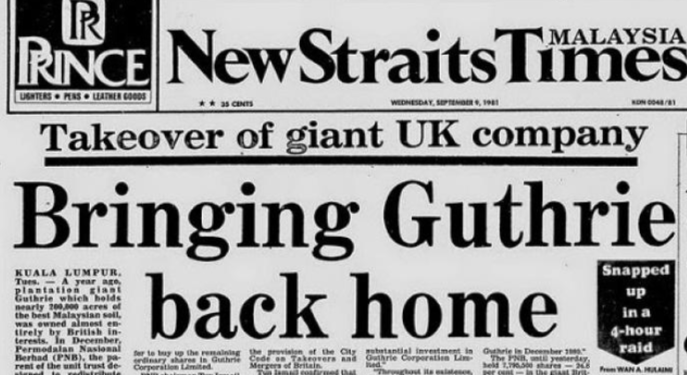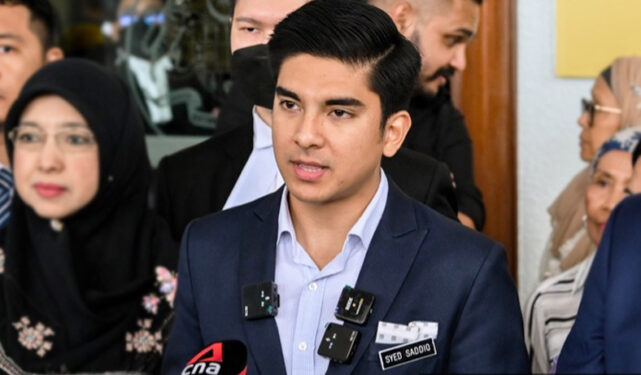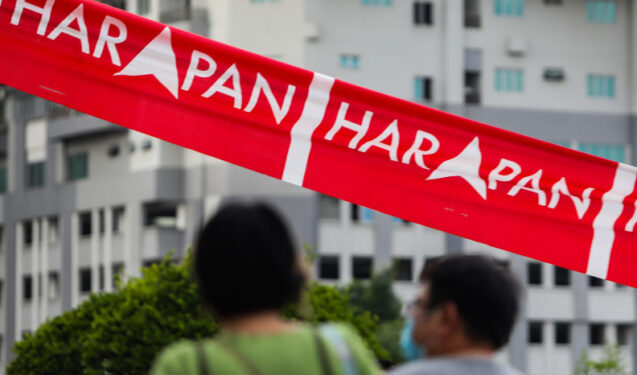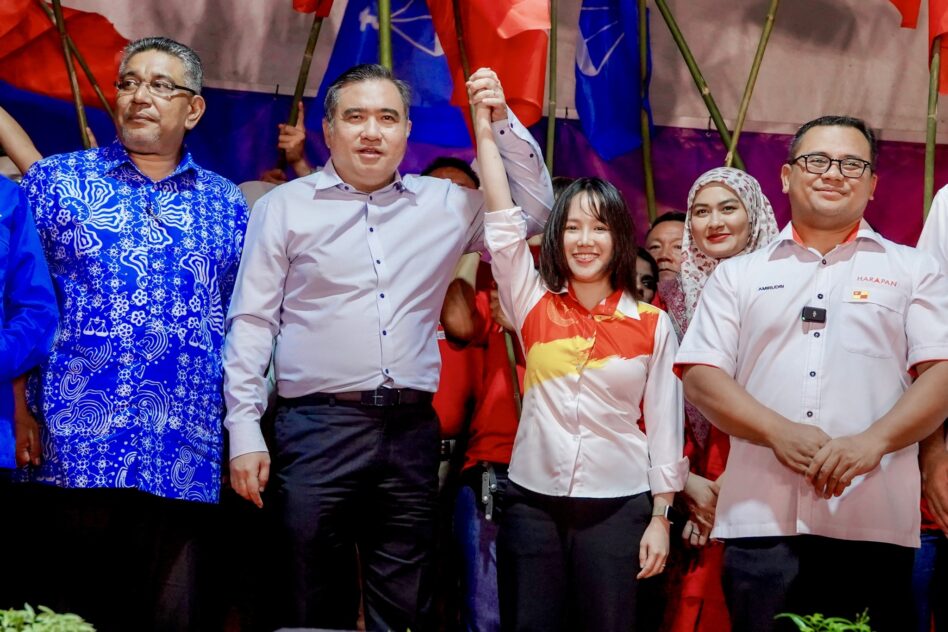[Photo caption: Khalid with Tun Dr Ismail Mohamed Ali (left)]
I LAST met the late Tan Sri Khalid Ibrahim when I went up the hill in Damansara Heights to his distinctive Malay-designed house.
He had been to see his doctor and I saw that he was no longer the stout sturdy man I watched on television when he was the Selangor Menteri Besar. He did not look well and he had lost weight.
I gave him my book Planter Upriver, a collection of 60 stories based on my experience in plantations over many years, and suggested he should get a book written on his days in the plantations industry.
I first met Khalid when we were going to the mosque for Friday prayers when he was still a young man in the newly formed Permodalan Nasional Bhd (PNB).
He had to form a team to get a system working which could attract investors to buy shares in attractive companies, especially those that were foreign-owned. It was a call that most Malays had heard from politicians alongside the cry of Merdeka!
Plantations were used as an example. The companies must be brought home. It was an idea that was followed up by Prime Minister Tun Dr Mahathir Mohamad and PNB which was then chaired by Tun Dr Ismail Mohamed Ali who had retired from Bank Negara Malaysia.
Khalid found it hard going at first, being an academic and now in corporate work. But he had a belief in making changes and set his aim from the start.
Having to report to Tun Ismail – and sometimes to Tun Mahathir himself – he had to think of all the questions that each of them could ask and he had to get the right answers. Sometimes he even wrote letters for them to sign – one if they agreed and an alternative course of action if they didn’t.
Much of his approach was formed from his early days at school. Growing up as a village boy near Kuala Selangor, he tried to earn money by giving tuition in mathematics and by drying copra on his family plot.
His first setback happened when the kiln went up in flames together with the contents in his copra hut. But he still had to pay his workers, He had to use all his tuition money.
‘Dawn raid’
He learned early how to be prepared and used each setback as a step to success. For Form Six, he studied on his own, often by reading only once and trained himself to remember details. He went on to university to study economics and later did his MBA in Queensland.
The big coup in his work at PNB was the dawn raid on Guthrie Corp in 1981. That story could fill a book. His studies in MBA had helped as the topic was on mergers and acquisitions. Khalid and his team moved swiftly to buy Guthrie shares in London so that within a few hours, PNB would be able to tip the scale and had majority control of Guthrie.
I had watched the progress of Khalid even after he left PNB to helm the Guthrie Group. Being in charge, he liked the direct way of management, feel the mood of the business and to take swift action.
He cut off all that were not core to plantations. He and his team visited the estates, met with executives and staff, and monitored their work in the field. He would reward managers who were efficient and fire those who were not.
He had plans to overcome difficulties. Probably the most difficult challenge was when he wanted to acquire for Guthrie a group of oil palm plantations land – mostly planted – of about 250,000 hectares in Indonesia.
It was after the 1987 financial crisis when big loans caused owners to lose their plantations which went for auction. He had to find a way to meet the top man who decided on the auction and who did not allow him to bid at first.
To overcome that challenge, he had decided to be at the office early before the bids were opened. He saw that if this was done exactly on time, he was able to leave out bidders who were still trying to beat the traffic jam.
Challenges
Khalid had his detractors. Later I had heard that he did not get the best areas for Minamas Plantations in Indonesia.
But I had a chance to see for myself. A bank had asked me to check on the loans and to see how the money was spent on the plantations. Many plantations had the size that would dwarf those in Malaysia.
Some of the places were remote. I saw the team being formed – headed by Malaysians in the regional offices – but the managers and their team on the estates were all Indonesians.
I observed that they had to do all things by themselves with no experienced contractors around as oil palm plantations were still new among the private sector in the country. But the quality of the estates, terrain and soil looked good, and I marvelled at Khalid’s achievement in getting them into the Guthrie fold.
He visited those plantations, including the ones that were remote. He hated singing but had to memorise one song, Widuri, which he would sing on request on those nights in each estate where speeches, dinners and singing were part of the evening when you met your local team.
The next thing I had heard was that he was leaving Guthrie. He was to join politics and stand for election. I had thought this was madness because he was a good teacher.
I could hear him some mornings giving talks on the radio on economics. He had clear ideas that were easy to follow. But a straight-talking man like him was no diplomat or politician, and sure enough, he failed at the election.
But he stood again later – under a different party – and to my surprise, he won. He became the Menteri Besar of Selangor. Often he was in the headlines, making changes, creating controversies, giving free water to residents of the state, reducing wastage and saving money. He attracted investments so much so that the wealth of the state improved.
After he lost his Menteri Besar job during his second term, we did not hear much of him. I would see him at the mosque in Bukit Damansara from time to time but we were not close. I only admired him from afar.
When I went to see him recently, I suggested that he should plan for a book. I could give some ideas, he could engage a writer, so people could be more aware what he had done especially in the plantation industry.
With the role he had played in bringing Guthrie home, and the acquisition of Minamas, he had done deals that no one had equalled. Both entities have since merged with Sime Darby Plantations to become one of the world’s biggest plantation companies.
Now the Guthrie name is no longer around. So is the plan for the book as he has breathed his last on July 31. But it is still worth remembering his achievements.
Perhaps one day, his role in the growth of the industry would be fully recognised. – Aug 4, 2022
Former planter Mahbob Abdullah is currently attached to IPC Services Sdn. Bhd, a consultant for plantations, mills and refineries.
The views expressed are solely of the author and do not necessarily reflect those of Focus Malaysia.


